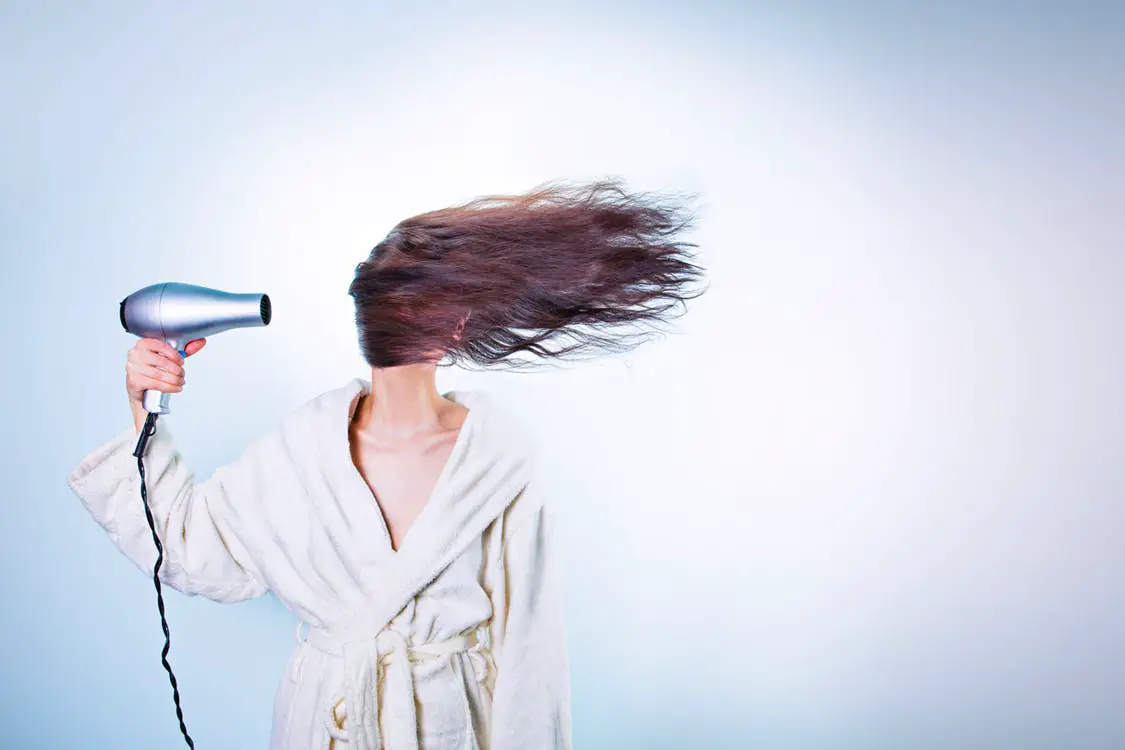Any woman that owns an eyebrow trimmer by far understands how important hair grooming is as concerns beauty. The journey towards achieving and maintaining a long beautiful and healthy hair is not exactly easy, considering that natural factors like low temperatures actually have an impact on the rate of hair growth.
Still, hair care is worthwhile, which is why women are awfully concerned about hair breakage and hair loss.
While it is detrimental to lose the little hair strands along your hairline, losing hair throughout your head is nerve-racking and tragic, regardless of your age.

Despite the warnings about taking care of hair to avoid breakage and damage, hair is surprisingly strong. A single strand of hair is capable of supporting 100 grams of weight, which means, if you treat your hair right, it can last you a long time, for between four and seven years. At the end of its life, if you pull it out, it will be painless, and immediately allow for new hair to grow.
Are you worried that your hair loss is increasingly high? The following are reasons that could explain your hair loss situation:
Genetics
Even though hair thinning and loss is traumatic, it could be time to accept that your situation may be as a result of genetics. A genetic predisposition of hormonal balances and imbalances, along with the conversion of testosterone into dihydrotestosterone (DHT), are the lead causes of hair loss in both men and women.
As the incidences of hair thinning and hair loss increase among women, it is necessary that you do a background check to determine whether your situation is inherited, from either your mother or father’s side.
Poor nutrition

Hair is a by-product of the nutrients the body absorbs from food items. If you are practicing poor eating habits and banking on starchy foods, animal fats and a couple of other unbalanced diets, your hair may be thinning as a response to this behavior.
Hair requires a couple of nutrients some of which are proteins to remain healthy, strong and lustrous.
Stress or trauma

Just like the way your body responds negatively to stress and trauma so that you are always feeling tired, moody, experiencing headaches and weight loss/gain, hair too does respond with breakage and thinning.
Stress and trauma are capable of a lot of damage to your body and hair and can constrict the blood supply to the capillaries, causing a lack of oxygen uptake and poor vitamin and nutrient absorption of the hair follicles.
Health
It is very unfortunate that some health conditions have a significant impact on hair growth. Illnesses like cancer and thyroid diseases can not only cause hair thinning or hair loss by themselves but also, medication for treating these illnesses commonly has a huge role to play in hair loss.
Other health issues that tamper with the hormonal balance of your body can also impel hair thinning gradually resulting in hair loss.
Medication

While medicine is meant to cure or suppress illnesses, they have a negative impact on hair. Ranging from birth control to steroids, blood pressure, diabetic, heart disease, and acne medications, medications can cause temporary or permanent hair loss. This also depends on the period of use because shortly used medications are not much of a threat to healthy hair.
Hormonal imbalances
During pregnancy, menstruation, and menopause, women undergo a significant fluctuation in hormone balance, so much that it can result in hair loss and/or hair thinning.
All this varies from woman to another, and the hair loss can be temporary to last through the hormonal imbalance period.
Anemia

A lot of women aged between 20 and 48 years today unknowingly suffer from anemia due to iron deficiency, especially those that experience heavy menstrual flows.
Ideally, hair loss is among the many symptoms of anemia, which are followed by heavier signs like fatigue and headaches. Consider visiting a doctor to get a blood test before you can cite anemia as the cause of your hair loss.
Dramatic weight loss
While weight loss is good news for most women, with it can come hair loss because of the amount of stress and pressure subjected on your body. Sudden weight loss seems to shock the system and causes a have a six-month relapse period of hair loss but bounces back soon after.
If this explains your hair thinning and/or loss, give yourself a little more time for your body to adjust and you will have your hair back in no time.
Over-styling

As little a reason, this seems like, too much manipulation of your hair increases the chances of breakage as it generally weakens the hair shafts. Vigorous styling like tight braids, ponytails, and hair treatments like chemical relaxers to straighten your hair, hot-oil treatments or any kind of harsh chemical or high heat, can eventually cause your hair to fall out.
The danger with this over other reasons is the fact that over-styling is a harsh to both your hair and scalp and can damage the root of your hair so that new hair strands will not grow back.

Dandruff
Dandruff is the most easily treated cause of hair loss. When the scalp is inflamed and itchy, and you frequently scratch it, the friction increases hair breakage and causes hair loss. Dandruff is also an indication that your hair is dehydrated, which is the number one cause of hair breakage, damage and thinning.
Aging
As distasteful as this is to you, aging is a common reason for hair thinning and loss in both men and women. As you approach your 50’s and 60’s, it is not uncommon to see hair loss or thinning of the hair, and therefore you should expect it.
Even with proper care and management, hair too does get old and outlives its lifespan, which causes it to fall out.
Before you completely freak out, note that most cases of increased shedding will gradually resolve on their own without treatment, and the hair loss you are experience might not be permanent.
If your situation is out of your control, consider wearing different styles for your hair, those that will complement your look, for example, scarfs, wigs and/or weaves, among others.









































